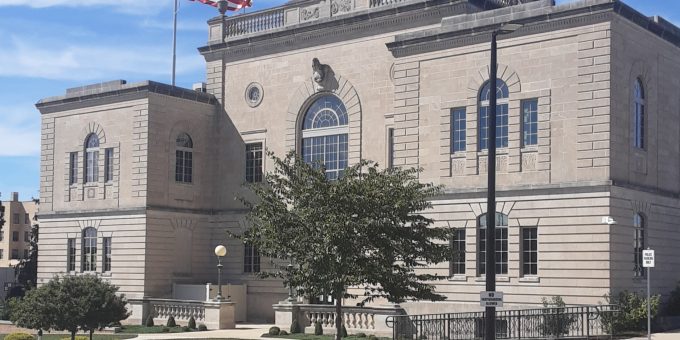
BEDFORD – The Lawrence County Commissioners sign an interlocal agreement to join the Rebuild Indiana Uplands Regional Land Bank.
The Land Bank is designed to acquire problem properties and then transfer them back to responsible ownership and productive use in accordance with local land use goals and priorities, creating a more efficient and effective system to eliminate blight.
The Land Bank will be granted special powers and legal authority pursuant to the state-enabling statutes.
- Obtain property at low or no cost through the tax foreclosure process
- Hold land tax-free
- Clear title and or extinguish back taxes
- Lease properties for temporary uses
- Negotiate sales based not only on the highest bid but also on the outcome that most closely aligns with community needs, such as workforce housing, a grocery store, or expanded recreational space.
“The process to develop the Land Bank began about 5 years ago,” added Greg Jones from the Southern Indiana Development Commission at an earlier meeting. “We will be looking at industrial and contaminated sites or brownfields and buildings that are dilapidated to see if we can build something out of them. There are many counties that have this problem and there is a heavy need here in Lawrence County.”
Most land bank acquisitions are vacant, residential, and tax-delinquent properties. In addition to tax-foreclosed parcels, land banks can acquire real estate-owned properties and receive private donations and public land transfers. Although most properties are typically vacant residential single-family homes or vacant lots, land banks also acquire multifamily dwellings and commercial and industrial properties, and in rare cases, occupied rental properties. SIDC would work with the Land Bank on brownfield sites to acquire large-scale formerly industrial properties.
SDIC is visiting 12 counties to see if they will join the Land Bank. Currently, Greene, Daviess, and Martin County have joined the land bank. It will cost each county $5,000 for 2023 and $5,000 for 2023.
“This is two years of seed funding to deal with the county’s dilapidated properties,” added Jones. “We will have inspectors go through each property and see if it is possible to salvage the property for rehabilitation and get it back on the tax rolls.”
Each county will form its own local committee to prioritize what properties they want to address and one member of the commissioners or county council will be a member of the Land Bank committee.



